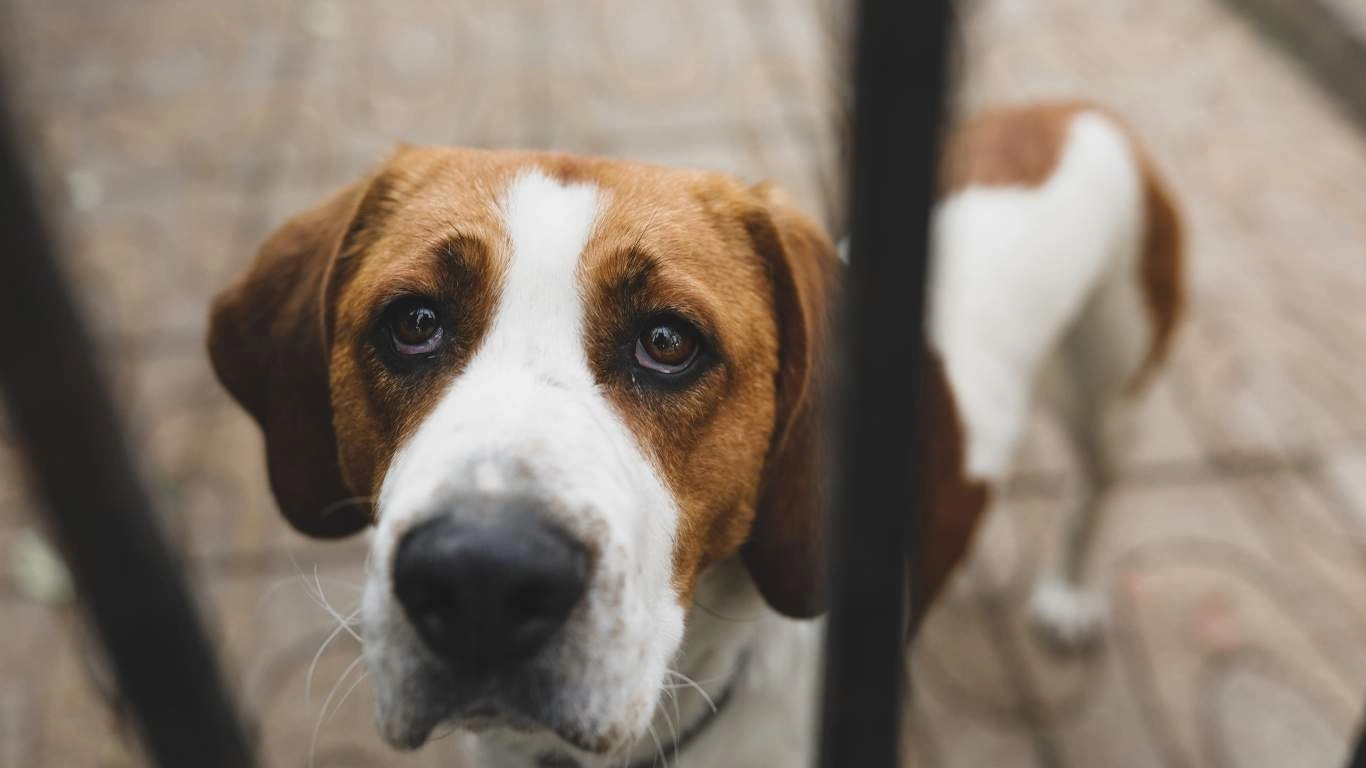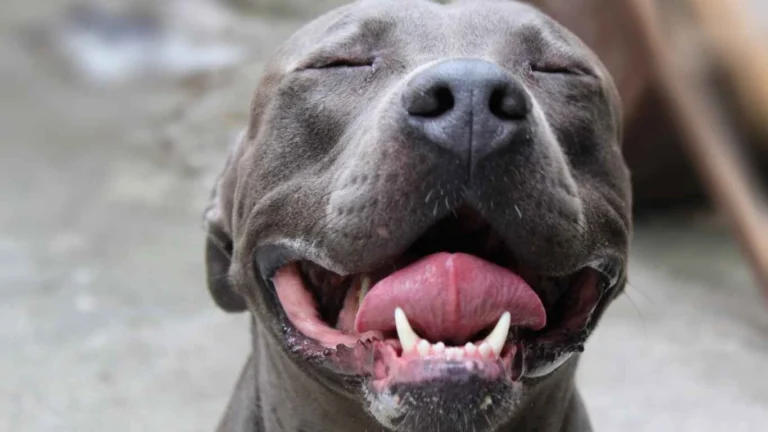How to Support a Dog’s Gut Health Naturally for Lasting Vitality
If you’ve ever worked closely with dogs like I have—as an Animal Care Specialist in shelters and clinics—you quickly realize that gut health isn’t just a buzzword; it’s absolutely crucial to a dog’s overall wellbeing. Supporting a dog’s gut health naturally can make a huge difference, not only in their digestion but in their energy levels, mood, and even immune system. Over the years, I’ve seen firsthand how small changes in diet and routine can transform a pup from sluggish and unsettled to vibrant and happy. So, if you’re curious about how to support a dog’s gut health naturally, you’re in the right place.
Why Gut Health Matters More Than You Think

The gut isn’t just a food processor; it’s often called the “second brain” because it has such a powerful impact on a dog’s overall health. When a dog’s digestive system is off balance, you might notice symptoms like diarrhea, gas, or picky eating—but it goes much deeper. Poor gut health can lead to inflammation, weakened immunity, skin problems, and even anxiety or behavioral changes. It’s one of those things that can be sneaky but plays a huge role behind the scenes.
From my experience, dogs coming into shelters often suffer from poor gut health due to stress and inconsistent diets. Helping these dogs recover naturally has been one of the most rewarding parts of my job because the results are so tangible. Once you understand the basics of gut support, it’s amazing how you can make such a positive impact with relatively simple, natural approaches.
Understanding the Canine Digestive System
The canine digestive tract is shorter and faster working than ours, which means what they eat and how it’s digested happens on a different timeline. Their gut flora—a community of friendly bacteria in the intestines—is key to breaking down food, absorbing nutrients, and keeping harmful pathogens in check. When this delicate ecosystem is disrupted by antibiotics, poor diet, or stress, digestive troubles follow.
Supporting gut health naturally means nurturing this balance of bacteria, promoting good digestion, and reducing inflammation. Over time, you’ll see improvements in energy, stool quality, and even the coat’s shine. In the shelter, I noticed that when we prioritized gut health with natural remedies and diet tweaks, dogs seemed to bounce back faster both physically and emotionally.
How to Support a Dog’s Gut Health Naturally

So what does natural gut support really look like? It’s less about expensive supplements and more about creating a balanced, gut-friendly routine. Here are some of the essentials I’ve used and recommended in my years caring for dogs.
1. Focus on a Balanced, Whole-Food Diet
A lot of dogs thrive on diets rich in whole foods, rather than heavily processed kibble. Fresh meats, vegetables, and quality carbohydrates can nourish the gut bacteria and provide essential nutrients. When I switched some shelter dogs to more whole-food-based meals, their digestion improved remarkably.
- Lean proteins: Chicken, turkey, and fish are easy on the stomach and excellent for repair.
- Fiber-rich veggies: Pumpkin, carrots, and green beans help regulate digestion and feed good bacteria.
- Complex carbs: Sweet potatoes or brown rice offer gentle, steady energy without spiking blood sugar.
2. Incorporate Natural Prebiotics and Probiotics
Prebiotics are the food for your dog’s beneficial bacteria, while probiotics are the live bacteria themselves. Both are crucial to restoring and maintaining gut balance. Foods like plain yogurt (make sure it’s dog-safe and without added sugars), kefir, and fermented veggies can be great natural sources. I’ve also found adding a probiotic supplement after vet approval can help dogs with ongoing digestive issues.
3. Hydration: The Unsung Hero of Gut Health
It’s easy to overlook water when talking about gut health, but staying well-hydrated is absolutely vital for digestion and nutrient absorption. I can’t tell you how many times I’ve seen dogs in shelters or clinics suffering from dehydration-related tummy troubles. Clean, fresh water helps keep the digestive tract running smoothly and flushes out toxins that could irritate the gut lining.
In my experience, encouraging dogs to drink enough water can sometimes be a challenge—especially if they’re stressed or recovering from illness. Adding a little bit of low-sodium broth or even offering water-rich foods like cucumber or watermelon (in moderation) can make hydration more appealing. It’s a simple, natural trick that often makes a big difference.
4. Stress Reduction for a Healthy Gut
One thing people don’t often realize is just how much stress affects a dog’s digestive health. Stress releases hormones that can disrupt the gut flora and even slow digestion. Dogs in shelters or unfamiliar environments are especially vulnerable. From my time working closely with anxious dogs, I’ve seen how calming their environment and routines helps restore gut balance.
- Consistent daily schedules for feeding and exercise
- Quiet, cozy resting spaces away from noise and chaos
- Gentle massage or calming pheromone sprays
These small adjustments can lower stress levels and promote a healthier gut naturally. Sometimes, just the comfort of a calm, predictable environment can do wonders.
Natural Supplements and Foods That Boost Gut Health

While whole foods and lifestyle changes form the foundation of gut health, certain natural supplements can give that extra boost. Based on my years in animal care, here are some natural options that are both effective and safe when used correctly.
Digestive Enzymes
Digestive enzymes help break down food more efficiently, easing the workload on your dog’s gut. Especially for older dogs or those recovering from illness, supplementing enzymes can reduce bloating and improve nutrient absorption. You’ll find enzyme supplements formulated specifically for dogs, but always chat with your vet before adding them to your dog’s regimen.
Bone Broth
Bone broth is a personal favorite I recommend all the time. It’s packed with collagen, gelatin, and amino acids that support gut lining repair and reduce inflammation. Plus, most dogs absolutely love the taste! I’ve seen dogs go from hesitant eaters to excited meal times once bone broth became part of their diet.
Fiber Supplements
Fiber is a crucial element in maintaining a healthy digestive tract. Natural sources like pumpkin puree are fantastic, but sometimes a little extra fiber supplement can help firm up stools and encourage regularity. I often suggest starting with small amounts and observing how the dog responds before increasing the dose.
Foods to Avoid When Supporting Your Dog’s Gut Health Naturally

Knowing what to avoid is just as important as knowing what to include. Some foods and ingredients can upset your dog’s digestive balance, leading to discomfort or worse.
- Artificial additives and preservatives: These can irritate the gut lining and disrupt good bacteria.
- Excessive grains: While some grains can be fine, too much can cause inflammation or allergies in sensitive dogs.
- Dairy products: Many dogs are lactose intolerant, and dairy can cause gas or diarrhea.
- High-fat or fried foods: These are tough on the digestive system and can lead to pancreatitis or upset stomach.
During my time at the shelter, I noticed that dogs with recurring digestive issues often had diets that included some of these troublemakers. Eliminating or minimizing them was a game changer for gut health recovery.
Recognizing When Your Dog Needs Professional Help

While supporting your dog’s gut health naturally is empowering, it’s also crucial to recognize when a vet’s input is necessary. Persistent diarrhea, vomiting, weight loss, or drastic behavior changes related to digestion are signs to get professional advice. During my career, I’ve worked with many dogs whose gut problems were symptoms of underlying health issues that needed targeted treatment.
Keeping a journal of your dog’s eating habits, stool quality, and any symptoms can be super helpful when consulting your vet. The better the info, the more tailored and effective the care will be.
Supporting a dog’s gut health naturally is all about consistency, patience, and paying close attention to your furry friend’s needs. It’s one of the most rewarding aspects of animal care, seeing a dog thrive from the inside out—and I hope these tips help you do the same!
Creating a Long-Term Gut Health Routine for Your Dog

After years of working hands-on with dogs, I’ve learned that gut health isn’t a quick fix—it’s a lifestyle. Whether you’re caring for a rescue pup or your longtime furry companion, building a sustainable routine is the key to keeping their digestive system strong and happy for the long haul.
Consistency is Your Best Friend
Dogs thrive on routine. Feeding them at the same times every day, using similar ingredients, and maintaining a calm environment can do wonders for their gut. Over time, their digestive system adapts and becomes more efficient. I always tell fellow pet parents that gut health improvements show up when you’re steady with your approach, not hopping from one “miracle” fix to the next.
Rotate and Refresh Their Diet
While consistency is important, it’s also good to introduce a little variety to encourage diverse gut bacteria. Switching proteins from chicken to fish, or adding different veggies, helps promote a balanced microbiome. Just remember to make changes gradually to avoid upsetting their stomach.
From my experience, dogs appreciate a mix of flavors and textures, and you’ll often notice they’re more eager to eat when their meals have a bit of variety.
Monitor and Adjust
Every dog is unique. Some may respond quickly to diet changes; others need a bit more time or different approaches. Keep an eye on their digestion, energy levels, and mood. If you spot any persistent issues, don’t hesitate to revisit your strategy or check in with your vet.
In the shelter, tracking these details was a routine part of our care, and it helped tailor diets and treatments that really worked.
Additional Lifestyle Tips to Boost Your Dog’s Gut Health Naturally

Regular Exercise
Physical activity helps keep a dog’s digestive system moving smoothly and reduces stress, which as we talked about earlier, is critical for gut health. Even gentle walks or playtime in the yard encourage better digestion and overall wellbeing.
Limit Exposure to Toxins and Chemicals
Household cleaners, pesticides, and even some flea and tick treatments can disrupt a dog’s gut flora. I always advise choosing natural or vet-approved products and avoiding unnecessary exposure. A healthy environment supports a healthy gut!
Maintain Regular Vet Checkups
While natural approaches go a long way, regular veterinary care ensures you catch any gut or health problems early. I’ve seen that proactive vet visits paired with natural gut support can keep dogs feeling their best well into their senior years.
References and Further Reading
Disclaimer
This article is intended for informational purposes only and is not a substitute for professional veterinary advice. Always consult your veterinarian before making any significant changes to your dog’s diet, introducing supplements, or addressing health concerns. Every dog is different, and what works for one may not be suitable for another.






